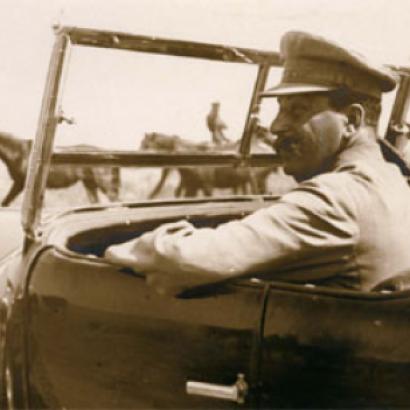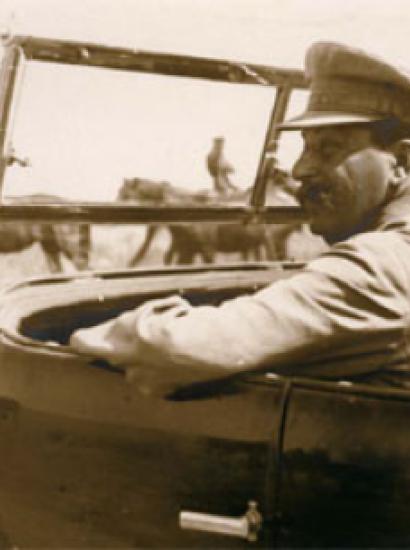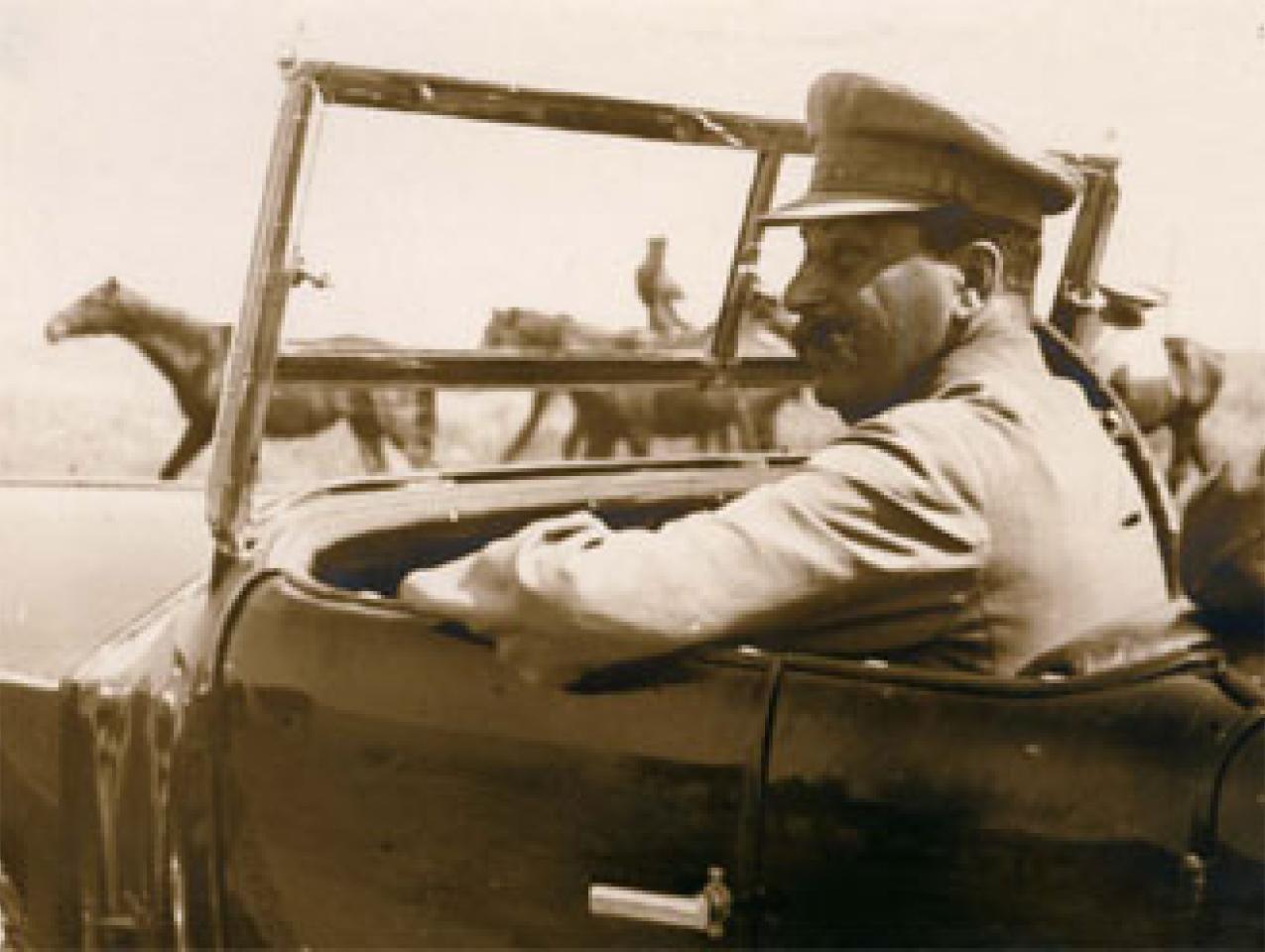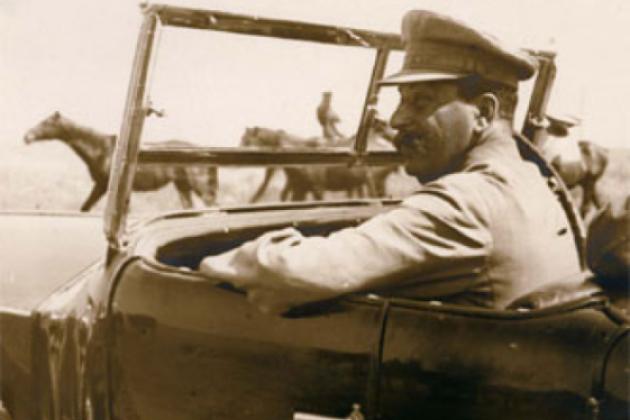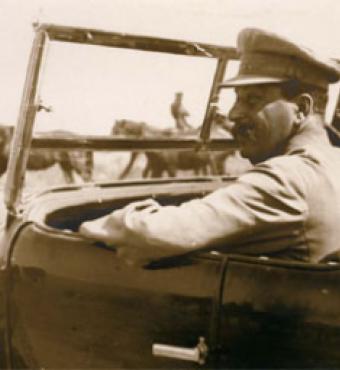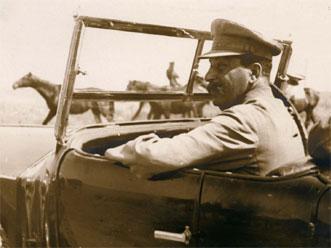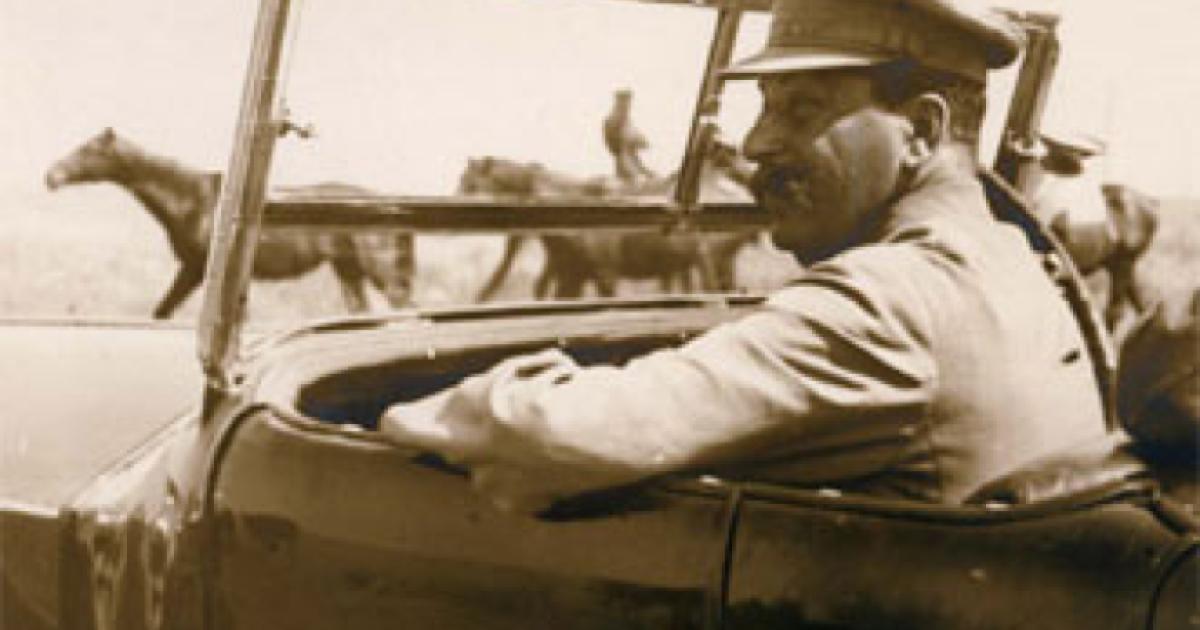Verbatim transcripts of the Soviet Politburo have come to light, revealing candid discussions by the USSR’s ultimate decision-making body as it invented a political, economic, and social system and struggled over who would lead the country. The discovery is like unearthing a lost gospel. Scholars did not know the transcripts existed; they had to content themselves with published Politburo agendas, surmising that transcribers would have been banished when secret matters were taken up. Yet thanks to the Hoover Archives’ pioneering efforts to microfilm significant Soviet state and party documents, and with a key clue from visiting Russian archivists, the transcripts have surfaced and are to be published by a Hoover team. They range from routine economic matters to the highest party politics— the expulsion of Leon Trotsky and his allies in the “United Opposition”— and are peppered with crude jokes, petty arguments, and threats. They chart a crucial 15-year period during which the last opposition to Josef Stalin was wiped out.
The story begins in June 1923, when the Politburo decided to make transcripts (called stenograms in Russian) of its main agenda items. Thirty-one such documents were made between 1923 and 1938 and archived in the Politburo’s top secret “special files,” where they would remain beyond the reach of scholars for almost 70 years. When the first stenogram was made, documenting a meeting of August 2, 1923, the Politburo had seven full members and six candidate members and Vladimir Lenin was still alive. By the end of 1930, of these thirteen, only four remained in the Politburo. The others had been replaced by Stalin loyalists, who oversaw Stalin’s policies of collectivization, dekulakization (eliminating so-called wealthy peasants), and forced industrialization.
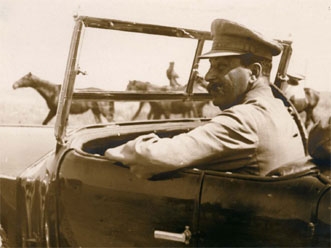
Of the twenty-two people who served as full Politburo members during this period, only four died of natural causes, not counting Stalin. Politburo membership was a dangerous business.
The stenograms were relatively few, considering how much work the Politburo performed. In 1930–35, the Politburo discussed 20,911 separate questions. Preparing a single stenographic account was time-consuming: remarks had to be distributed to each speaker for review, editing, and sometimes significant additions or even changes of positions. In one case, Trotsky doubled the length of his remarks, a fact that Stalin and his faction scornfully reported. Without photocopiers, party clerks had to cut out each participant’s comments, paste them on blank pages, send them to the official, and then add the revisions to the final version.
Control of the Politburo meant control of the country. Stalin’s battle to dominate the Politburo started with an advantage: he was allowed to organize the meetings, a practice that went back to at least 1922 and was blessed by Lenin. The agenda remained firmly in his hands. In most cases where a stenogram was made, Stalin wanted to have a transcript to inform his allies of the latest party line and who was in and who was out. Nonetheless, it was often decided not to distribute them after all, especially if they pointed to internal divisions or “deviations” from Stalin’s policies.
Details of the discussions behind closed doors were masked by bland published agendas that were telling for their silences. The bitter struggle between the Politburo majority and the United Opposition of Trotsky, Grigory Zinoviev, and Lev Kamenev in the sessions of October 8 and 11, 1926 (covering more than 200 pages of transcripts), appears in the official agenda only as “Detailed discussion of the decision of the Politburo from October 7, point 1.” The most significant Politburo decrees, such as the launching of dekulakization and the Great Terror, were acknowledged by titles like “About measures associated with kulaks” and “Question of the NKVD” and were buried in special files.
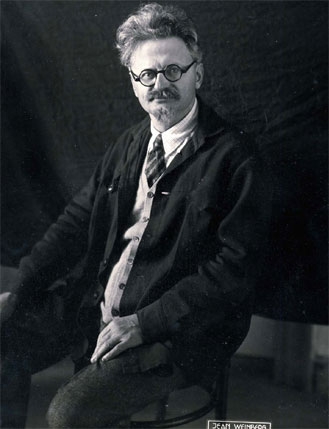
The stenograms bring those dry agendas to life. Transcribers’ notes include descriptives such as “laughter,” “noise,” “jeers,” and “agitation in the room,” as well as the ringing of the bell by the chair to restore order or to signal that a speaker’s time was up. The chair occasionally had to warn a participant to restrain himself. Once, after Stalin had charged Trotsky with “complete intellectual and political bankruptcy,” the chair tried to turn to another speaker, evoking the following exchange:
Chairman: Comrade Yaroslavsky has the floor.
Trotsky: Comrade Stalin spoke 25 minutes.
Chairman: Exactly 20 minutes.
Trotsky: Comrade Stalin spoke 24 minutes.
Chairman: Your watch must be more reliable than the sun. Comrade Yaroslavsky has the floor.
The transcriptions made some Politburo members uneasy. Felix Dzerzhinsky, head of the secret police, had a bitter exchange with Trotsky on June 14, 1926:
Dzerzhinsky: I believe that to keep a record of what we talk about is a crime.
Trotsky: Of the fact that we talk? If so, we must direct your OGPU [the secret police] to force us to stop talking; this will simplify everything.
But Stalin, too, emphasized the importance of discretion when meetings were being transcribed. He rebuked Politburo member Mikhail Kalinin for speaking out against a Politburo consensus:
Stalin: Kalinin’s remarks should not have been delivered before the Politburo. What is written will be read by regional party officials, and I want to say that this is dangerous and incorrect.
Nominal head of state and Politburo member Kalinin warned Politburo members on October 11, 1925, to think twice about statements being transcribed:
Kalinin: If we conducted Politburo discussions without stenograms, without announcements, we could allow ourselves more leeway. But this discussion is associated with antiparty forces and can weaken Soviet power to a significant degree.
Members wanted the Politburo to be viewed as an oracle—wise men issuing wise directives. They did not want crude or petty remarks to sully their pronouncements. Speakers could edit out undiplomatic, or, in the case of Stalin, unstatesmanlike, utterances from the final transcript. Stalin deleted about half of his remarks from a November 27, 1932, meeting called to attack “deviationists.” Many of them were wisecracks or caustic remarks aimed at other speakers, such as: “He [Smirnov] is not capable, like others, of deftly hiding things. It just bursts out of him.” After editing out his comments, Stalin then inserted a long prepared speech extolling the successes of his regime.
In some cases, Stalin chose to leave in his vitriol despite its kindergarten rhetoric. Consider Stalin’s response to Trotsky’s accusation of his bungling during the civil war:
Stalin: I wrote about this in the press and no one contradicted me. During the most critical points of the civil war, we dealt with our most formidable enemies by ourselves, without Trotsky and despite Trotsky.
Trotsky: Let’s release all of Lenin’s correspondence. It will prove that I am right. [In his editing Trotsky adds indignantly, “Am I not allowed to rebut all the slander directed against me?”]
Stalin: I am not stopping you and you can’t stop me.
Trotsky: You always have the last word.
Stalin: You are lying because you are a pitiful coward who fears the truth.
Stalin comes across as an adept, street-fighting debater. His most feared rival, civil war hero Trotsky, reveals himself as egotistical, politically clumsy, and ill-prepared, making himself an easy target for Stalin and his allies. One such ally, Jan Rudzutak, mocked Trotsky in the culmination of a heated debate over Trotsky’s proposed political program:
Rudzutak: Comrade Trotsky, I know that you have a powerful brain but it was placed in the body of a fool. Therefore leave me in peace just one time.
Caught off guard, Trotsky could only weakly respond:
Trotsky: Your wit is already better known than your limited administrative talents, which are discussed anywhere and everywhere even by Stalin himself.
Requests for transcripts, especially by members under attack by Stalin, were often met with suspicion. At the October 11, 1926, meeting, Stalin opponent Kamenev defended his request for a transcript:
Kamenev: Somebody said that I spoke for the record, to be able to “wave a paper.” I am willing to speak without a transcript. I dare say that I am not on record now. But I must say that stenograms have been used before as a weapon to discredit us.
Stalin: Today you demand stenograms not for cooperation, but for struggle. The Politburo is not to be blamed if you look for and create material for struggle.
When the Stalin majority moved to remove Zinoviev as chairman of the Leningrad organization, Zinoviev’s ally E.G. Evdokimov (notably not a Politburo member) demanded that the session be transcribed:
Evdokimov: I request a transcript because I consider it a matter of extreme importance, as a general political issue, both internal and external. I also reserve the right to prepare a declaration addressed to all members of the Central Committee and to the Central Control Commission. Is there anything else that I can add to what I have said?
Voice: Think it over.
Evdokimov: There is nothing to think over. I get upset, comrades, when I speak. I am temperamental and do not always have the necessary clarity of thought and self-control when it is required.
Stalin: That is dangerous for your health.
Evdokimov was shot during the Great Terror.
The congeniality of the early transcribed sessions had drained away by 1926, as the battle between Stalin and Trotsky intensified. Seeing themselves overwhelmed by Stalin’s control of the party machinery, the United Opposition figures offered peace if they were allowed to present their alternative platform directly to the party rank and file. The absence of Trotsky ally Zinoviev from the October 8 meeting drew immediate derision from the Stalin camp, as represented by trade union leader Mikhail Tomsky:
Tomsky: I don’t like to relate private conversations, but yesterday I asked Kamenev why Grigory [Zinoviev] was not present. Was he ill? And the answer was, “His father is ill.” (Laughter.)
Uglanov [Nikolai Uglanov, the Moscow party secretary]: How can he be ill? He works at a dairy farm.
Tomsky: I was amazed at Comrade Zinoviev, who appears to be a gentle and loving son, who is capable of putting aside issues of great political importance to fulfill his duties as a faithful son. But it turns out that either Kamenev misinformed me or Grigory misinformed him.
The chastened Zinoviev, who was in Leningrad trying to drum up support for the opposition position, hastened back to Moscow for the October 11 meeting.
The October meetings ended with a strategic retreat of the opposition, who, with the exception of the stubborn Trotsky, promised that they would cease their factional work. Kamenev’s attempt to formulate a compromise was met with derisive laughter:
Kamenev: You told us that you want us to admit to factionalism and agree to cease and desist, and we formulated our response as best we could. (Laughter). I do not understand why you are laughing. We honestly said that we will subordinate ourselves.
Stalin ally Mikhail Kalinin could not resist mocking the recalcitrant Trotsky:
Kalinin: Comrade Trotsky knows how to make a molehill from a mountain.
Stalin: And from a molehill a mountain. (Noise in the hall, laughter.)
Within a year, the last vestiges of compromise had dissipated. The United Opposition continued to insist that its alternative program be presented to the upcoming party congress. The no-holds-barred tone is reflected in the following exchanges of September 8, 1927:
Stalin: Comrade Trotsky demands equality between the Central Committee [Stalin usually invoked the authority of the Central Committee, which he headed, rather than the Politburo], which carries out the decisions of the party, and the opposition, which undermines these decisions. A strange business! In the name of what organization do you have the audacity to speak so insolently with the party?
Zinoviev: Each member of the party has the right to speak before the party congress, and not only organizations.
Stalin: I think that it is not permitted to speak so insolently as a turncoat to the party.
Zinoviev: Don’t try to split us; don’t threaten, please.
Stalin: You are splitting yourselves off. This is your misfortune. . . . Judge now the value of your idle chatter about the governance of the party. . . . Only those who have joined the camp of our enemies could sink so low. But we wish to pull you out of this morass.
Trotsky: You should pull your own self out of the swamp first. (Noise, shouting, the bell of the chairman.)
Zinoviev: You should get out of the dead end yourself. We are on Lenin’s road, and you have left it.
The defeat of the United Opposition signaled that alternative views now constituted “factionalism” and “betrayal of the party.” Zinoviev accused Stalin of cowardice:
Zinoviev: What are you afraid of? Why are you trying to hide our platform? What does this say about your courage?
Stalin: We do not want to turn the party into a discussion club.
Soon it was the turn of his former allies to be accused of factionalism, as Stalin adopted the ideas of the defeated opposition. Having no tolerance for party officials who questioned his policies and personal authority, he redefined disloyalty to include the failure to support the party line with sufficient zeal and vigor. By 1932, with Trotsky’s supporters long since excluded from the party and Trotsky in exile, Stalin turned his attention to his own former allies—Nikolai Bukharin, Alexei Rykov, and Tomsky. They were all excluded from the Politburo in 1929 and 1930. Although the political clouds were darkening, the penalty for disobedience was still exclusion from the Politburo, the Central Committee, or, in the worst case, the party. The first high-level executions would not take place until the Moscow Show Trial of the “mad dogs” Zinoviev and Kamenev in 1936.
The following 1932 exchange shows one of Stalin’s future victims, Tomsky, still calling his former Politburo colleagues by their first names and trying to joke with them. (Tomsky later committed suicide, much to Stalin’s regret at losing a potential star of another show trial.) Tomsky had been summoned to answer the charge that his absence from a Central Committee Plenum was a deliberate insult to the party. The sparring centers on wordplay: “sitting at the front” also means being part of the Stalin majority, and “not hearing” means not accepting Stalin’s policies:
Tomsky: There are many rumors about my absence. But see for yourself, I came here today at your invitation, and I had to look for a place to sit. I need to sit in the first row. Otherwise it’s a waste of time because if I sit at the back, I hear nothing. (Laughter).
Stalin: Nobody is preventing you from sitting at the front. [Stalin edited out this remark.]
Tomsky: But I am not able to come to the Politburo and sit here simply as a stage prop.
Ordzhonikidze [Grigory Ordzhonikidze, a Stalin ally and industry czar]: Come sit closer. No one is preventing you.
Tomsky: Well, if you give me a place in the first row, I’ll come. (Laughter.) [Tomsky added to the transcript: “Some comrades ask me if it does not reflect badly on me that I do not go to the Politburo. I tell them that it makes no sense for me because I can’t hear anything.”]
Ordzhonikidze: And at the Central Committee plenums you also do not hear anything? (Laughter.)
Tomsky: I assure you, Sergo [Ordzhonikidze’s nickname], that with regards to the plenum there was no shadow of ill intentions.
Ordzhonikidze [darkening his tone]: You are speaking nonsense that you can’t hear and for that reason do not attend. Well, you come closer and sit here. Then you can hear everything.
Tomsky: But you will be the first to make fun of me.
Ordzhonikidze: What are you talking about? I hear as poorly as you. (Laughter.)
Stalin [remark later edited out]: In fact, he hears worse than you.
Tomsky: No, he somehow hears better.
Kaganovich [Lazar Kaganovich, Stalin’s deputy and right-hand man]: Yes, indeed, he hears better when it comes to certain issues.
These are examples of the exchanges that make up the more than 1,000 pages of dialogue. Hoover researchers and Yale University Press will publish next year the complete set of transcripts in Russian as a three volume set. Hoover authors are publishing a companion book in English that offers a first analysis of these archives (The Lost Transcripts of the Politburo, by Paul R. Gregory and Norman M. Naimark, Yale University Press). The transcripts surfaced only in July 2003, when visiting Russian archival representatives informed the Hoover Archives that Politburo transcripts had been transferred to them from the closed Presidential Archive—where no one had checked out a document for a half century. Thus was organized a joint project by the Hoover Archives and the Russian Archive for Social and Political History to publish the transcripts in their entirety, even though no one had seen their contents. It will take years to assess them.
The Hoover Institution continues to pioneer the microfilming of Soviet state and party archives, and Hoover’s current holdings of such material number in the millions of documents. The Soviet collections have attracted more scholars to Hoover during the past decade than any other material, reinforcing Hoover’s reputation as the world’s richest study archive for the history of communism.
The final Politburo transcript dates to October 11–12, 1938, a month before Stalin called off the Great Terror. None had been made during the 1935–1938 period in which he was exterminating the Bolshevik leadership and executing nearly three-quarters of a million ordinary people. In attendance at the October session were a new crop of regional party secretaries, most of whose predecessors had been put to death. Stalin delivered to his apprehensive audience a remarkable soliloquy. He began by speculating that supporters of Trotsky and Bukharin had numbered no more than forty thousand:
Stalin: What do you think; were they all spies? Of course not. Then what happened to them? They were not properly prepared politically. There were also “our people” who went over to them. . . . Because they were weak and unprepared and thought nothing would come of this, we lost a large number of capable people. We can explain this mistake [my italics] in a number of ways, but I explain it by the fact that we were engaged in great deeds. In this period, we lost many but we acquired new cadres who won over the people to collectivization and won over the peasant. Only this explains why we were able so easily to replace yesterday’s party elite.
This chilling off-the-cuff remark, made at a routine Politburo meeting, reveals Stalin’s mind-set. His annihilation of the party leaders was not necessary and was perhaps even a mistake. But no harm was done. Stalin was pleased they were so easy to replace.








